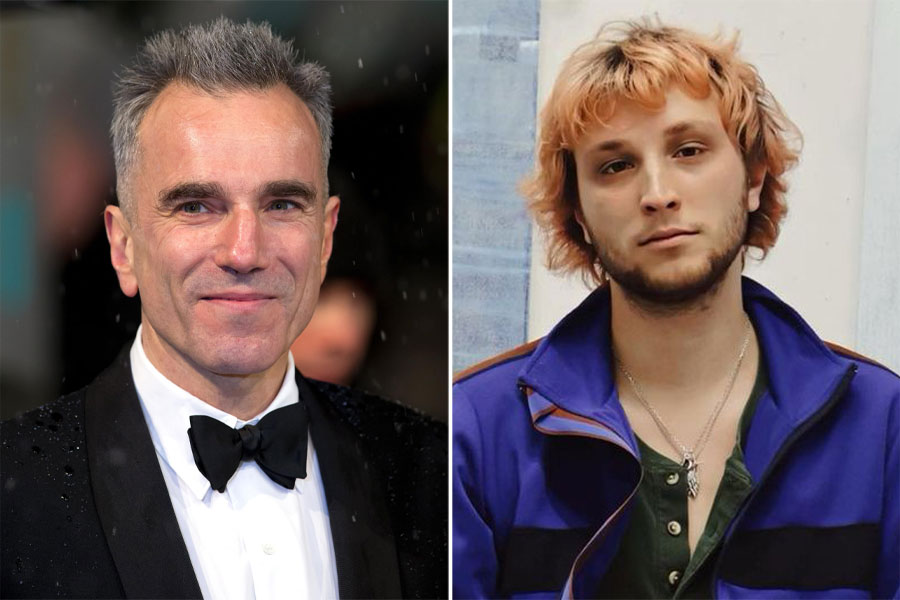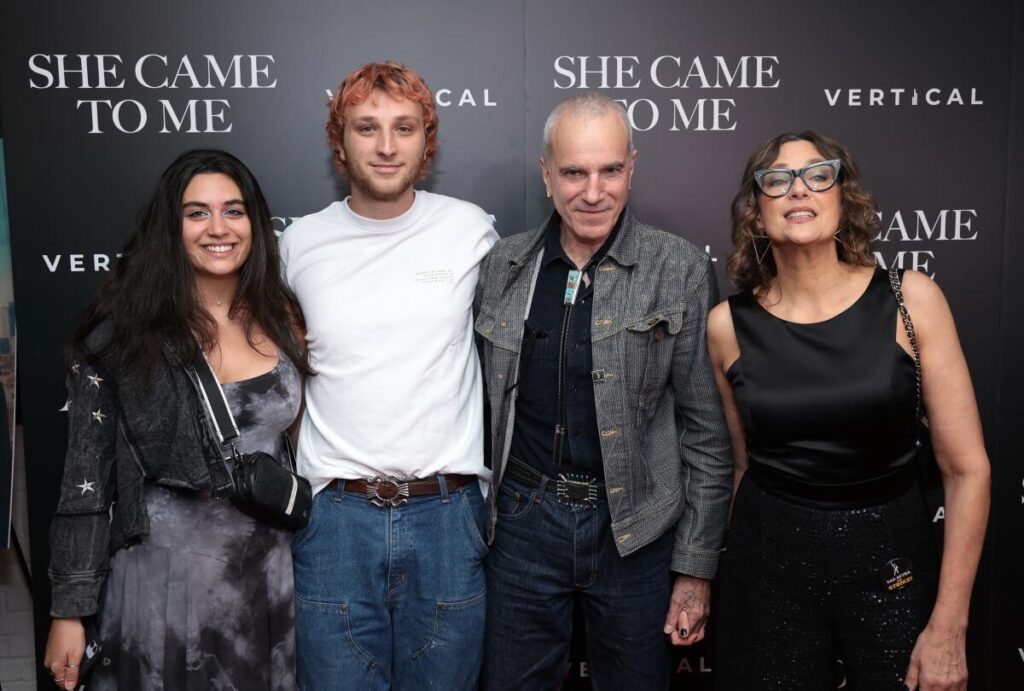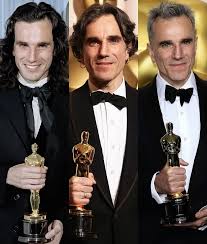Daniel Day-Lewis is back on screen, and the film world is holding its breath. The three-time Academy Award winner, often hailed as one of the greatest actors of all time, has returned from retirement with Anemone, a searing family drama that doubles as both a comeback story and a personal collaboration. After stepping away from the screen in 2017 following Paul Thomas Anderson’s Phantom Thread, Day-Lewis declared he was done with acting forever. But eight years later, at age 68, he has reemerged with a performance so visceral and profound that it is already being described as seismic.
The film, which had its world premiere at the New York Film Festival, is a project born from family ties. Day-Lewis co-wrote the script with his son Ronan, who at 27 makes his directorial debut with the project. Together, they have crafted a film that is both intimate and mythic, a story about guilt, exile, and reconciliation that mirrors the complicated dance between retreat and return in Day-Lewis’ own career. In Anemone, the actor plays Ray, a man who vanishes into self-imposed exile after being accused of a war crime. For two decades, he has lived in isolation at a remote cabin, only to be confronted by his estranged brother Jem (Sean Bean), who arrives determined to pull him back into the world. The story is at once simple and devastating: a meditation on what happens when one man’s shame collides with another’s persistence and love.
A Return He Once Swore Off
Day-Lewis has never been an actor who courts the spotlight lightly. His career has been defined by long silences, intense periods of preparation, and a famously rigorous devotion to his craft. When he announced his retirement after Phantom Thread, he explained that the burden of public life and the exhaustion of inhabiting characters so completely had left him drained. “I made a fool of myself by announcing that I was going to stop working and probably a bigger fool of myself coming back,” he admitted during a Q&A at the New York Film Festival. The audience laughed, but the confession rang with sincerity. For him, acting has always been a double-edged gift — both a calling and a torment.
Yet what drew him back was not a studio offer or a grand role from an auteur, but something much closer to home: the chance to collaborate with his son. To deny himself that opportunity, Day-Lewis said, would have been a worse decision than simply giving in to pride. Ronan Day-Lewis, who grew up watching his father’s career from the margins, found his own artistic voice behind the camera. Together, they shaped Anemone as a deeply personal narrative. Their working relationship is one of the most intriguing aspects of the film’s creation — a legendary actor putting his trust in the vision of his son, while allowing himself to be vulnerable enough to step back into the spotlight.
The Power of Performance
If there were doubts about whether Day-Lewis could recapture his old magic after eight years away, they were put to rest at Anemone’s premiere. His performance as Ray is not simply a return to form; it is a culmination of everything that has made him singular across his career. Critics and early audiences have singled out two monologues as particular highlights, the kinds of scenes that crystallize why Day-Lewis has been called the greatest of his generation.
In the first, Ray breaks down while recounting atrocities he witnessed during the Troubles in Northern Ireland. The scene is delivered with devastating restraint, allowing pain to build until it becomes almost unbearable. His voice cracks, his body folds inward, and for a moment, the audience is not watching an actor at all but a man consumed by memory. It is vintage Day-Lewis — the ability to dissolve entirely into a character’s grief until it feels too real to be performance.
The second monologue provides a dark counterpoint. Here, Ray drunkenly tells the story of exacting revenge on an abusive priest, unleashing both scatological humor and righteous contempt. The camera holds tight on Day-Lewis’ face for nearly five minutes, refusing to let the audience look away as he veers between laughter, anger, and the bitter joy of remembering small victories in a world of cruelty. That sequence, Day-Lewis revealed, was the first piece of writing he and Ronan produced for the film. “The fact that it appeared to us so early in the writing process, it felt like Ray announcing who he is now to Jem, and also announcing himself to the audience,” he explained. It set the tone for everything that followed.

The Legacy of an Artist
Day-Lewis’ career has been marked by long gaps, each return carrying the weight of anticipation. From his Oscar-winning performances in My Left Foot (1989), There Will Be Blood (2007), and Lincoln (2012), to his unforgettable turns in Gangs of New York, In the Name of the Father, and Phantom Thread, he has consistently redefined the boundaries of screen acting. With six Academy Award nominations and three wins, he already holds a unique place in cinema history. Anemone may well add a seventh nomination, if not a fourth win, to that list.
But beyond awards, what makes his return so meaningful is the reminder of what it means to have Day-Lewis back on screen. He is not a performer who takes roles lightly. Each project feels monumental, a total commitment of body and soul. That intensity can be exhausting for him, but for audiences, it is transformative. Watching him work is to be reminded of the heights that acting can reach.
A Festival Highlight
Anemone premiered as part of the New York Film Festival’s lineup, which also featured films by Jodie Foster (A Private Life), George Clooney (Jay Kelly), Idris Elba (A House of Dynamite), and Ethan Hawke (Blue Moon). Yet amid the starry premieres, it was Day-Lewis who dominated conversation. His presence at the festival was itself a spectacle — a man who once insisted he would never return now walking the red carpet, fielding questions, and humbly acknowledging the contradictions of his career. He admitted he has never felt entirely comfortable with the promotional side of filmmaking. “I thought I’d get used to it, but I never really did, so it left me wondering if I wasn’t just better off keeping out of it,” he said. Still, his willingness to appear alongside his son and speak openly about the process underscored the sincerity of his return.
The Weight of Absence and Return
Day-Lewis’ retreat from acting after Phantom Thread was not surprising to those who had followed his career. He has long been drawn to solitude, often taking years away from film to work as a shoemaker in Italy or simply live quietly away from Hollywood. His reluctance to exist in the public eye has made him an enigma, adding to the aura that surrounds him. Every return has felt like an event. But this one feels different — less like a career move and more like a personal act of reconciliation. By stepping into a story about exile and return, written with his son, Day-Lewis seems to be working through his own complicated relationship with art and with the world.
An Actor and His Craft
What has always set Day-Lewis apart is his immersion into character. Stories of his method acting are legendary — refusing to leave his wheelchair on the set of My Left Foot, insisting on being addressed as Lincoln for months, or inhabiting Daniel Plainview so fully that even co-stars found him intimidating. This devotion can seem extreme, but it has consistently yielded performances that feel larger than life yet grounded in startling humanity. In Anemone, he brings that same totality of commitment, but filtered through the wisdom of age. Ray is not a young man burning with ambition or anger; he is an older man broken by regret, trying to find a way to exist again. In portraying him, Day-Lewis seems to be asking questions of himself: What does it mean to return after so long? What does it cost to come back?
The Future
At the Q&A, Day-Lewis stopped short of promising more films, but he hinted that he has rediscovered a spark. “Eight years ago, I didn’t really expect to find my way back to the appetite for this work again,” he said. “I did, and I’m really grateful for it, and I hope I do again.” Whether or not Anemone marks the start of another chapter or stands as a singular return, it is a gift for audiences. To watch him perform again is to witness an artist who continues to push himself, even when the effort is fraught.
For Ronan Day-Lewis, Anemone is an extraordinary debut. To step into directing with his father in the lead is a daunting task, but early reviews suggest he has crafted a bold, expressionist drama that matches his father’s intensity. The collaboration has opened doors not just for Daniel’s return, but for Ronan’s emergence as a filmmaker in his own right. In this sense, Anemone is more than a comeback; it is a passing of creative energy from one generation to the next.

A Triumphant Homecoming
As the credits rolled at the New York Film Festival, the applause was thunderous. Day-Lewis, visibly moved, embraced his son on stage. It was not just the return of an actor, but the reappearance of a force of nature. In Anemone, he proves once again that time away does not diminish genius. If anything, the years of silence have only deepened his well of emotion, allowing him to deliver a performance that feels both timeless and urgently necessary.
For audiences, the return of Daniel Day-Lewis is a reminder of cinema’s enduring power to astonish. For the actor himself, it is a reminder that sometimes even the most resolute farewells are not the end. Anemone is a film about exile, shame, and reconciliation — but it is also about the possibility of coming back when the world least expects it. And in that way, it mirrors the life of its star.
Eight years after he swore he was done, Daniel Day-Lewis has stepped back into the light, and the result is nothing short of triumphant.
